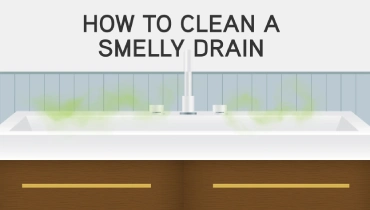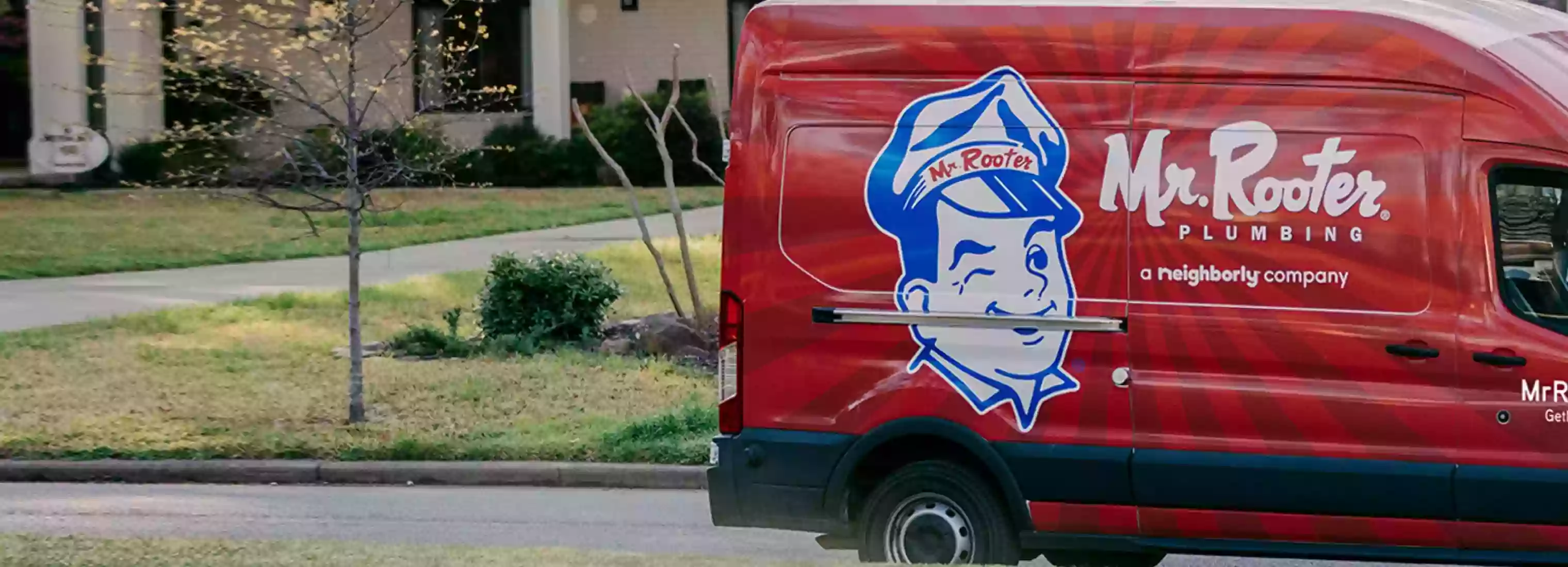How to Clean a Smelly Drain

You walk into the kitchen or bathroom and instantly detect a foul odor. Is it the trash? No, that’s not it. Did the dog have an accident? No, that’s not it, either.
Finally, you realize the malodorous offender is the sink. You turn on the faucet and run the disposal if the sink has one but to no avail. It’s official — you have a stinky drain.
Fortunately, with a little investigating, cleaning, and preventative measures, you can remove the odor and freshen up the drain for good.
In this article, we’ll explain why drains start to smell bad and how you can get rid of smelly drains using effective cleaning techniques.
What Causes a Smelly Drain?
Sinks are notorious for developing unpleasant smells because various things can go wrong inside the pipes. The most common causes of stinky drains include:
- Gunk and bacteria: Food, hair, grease, soap particles, and other gunk can line your pipes. Even if they don’t form a clog, they attract bacteria, which release foul odors.
- Clogged vent pipes: When debris clogs drain vents, water can start to pool in the sink. Standing water can grow stagnant and encourage bacteria growth. Over time, this will lead to foul odors.
- Sewer gases: Empty P-traps allow sewer gases to rise from the drain. This often happens in sinks that receive infrequent use.
- Plumbing errors: Missing traps or vents, leaks, and rotting drain tubes installed by overly ambitious DIYers can all cause odors to seep from a bathroom or kitchen sink.
Smelly Drain Cleaning Supplies
So you have a stinky drain in your sink. Fortunately, it’s not the end of the world. You can probably take care of this issue all on your own.
Before you start trying to fix the drain, here are some of the supplies you may need to tackle that smelly sink:
- Water or distilled white vinegar heated to a near-boiling temperature.
- Baking soda
- Rubber gloves
- Wrench
- Bucket
- Hose
How to Fix a Smelly Drain
Below, we list several proven ways to eliminate foul odors from a sink drain. We recommend you start with the simplest option and work your way toward the more complicated ones.
- The Hot Liquid Method
Bring a pot of water or distilled white vinegar almost to a boil and pour half of it slowly down the drain. Wait for a few minutes, rinse the pipe with cold water to solidify any lingering gunk, and pour the rest of the hot water or vinegar down the drain to wash it away. Vinegar may be the better choice for bad smells as it has gentle cleaning properties that water lacks. - The Baking Soda and Vinegar Method
Run hot tap water for several seconds, and then turn the water off. Dump one cup of baking soda down the drain, followed by two cups of hot vinegar. Let the concoction fizz. After one hour, flush the drain with hot tap water. The fizzing reaction helps clean out any gunk in the drain and kills bacteria. - The Clean the P-trap Method
Put on rubber gloves and place a bucket beneath the curved portion of the drainpipe beneath the sink. Once the bucket is in place, remove the curved portion. Empty any water and gunk from the trap into the bucket. Take the P-trap outside and rinse it out with a garden hose. Reassemble the plumbing before using the sink again. - The Clean the Drain Vent Method
In most houses, all drain vents terminate in a single opening on the roof. Climb up a ladder and clear away any leaves or other debris that may be clogging the drain vent.
You may have noticed that one common household cleaning tool is missing from this list. Bleach, while extremely useful for cleaning items, is not a great fit for drains. Despite its antibacterial properties, bleach can also damage pipes and release dangerous gases if it lingers in your drain for too long and mixes with ammonia.
How to Fix Smelly Drains for Good
Follow these tips to prevent future odors:
- Run the disposal and the faucet for 20 seconds every time you dispose of food down the kitchen sink.
- Pour a gallon of near-boiling water down the drain once a week.
- Occasionally run the water in rarely used sinks to keep the P-trap full of water. Adding mineral oil also slows evaporation.
Professional Drain Cleaning
Mr. Rooter® Plumbing offers superior drain cleaning services at an affordable price. To take advantage of our licensed experts, modern plumbing equipment, and emergency services, find a location near you or call us to schedule service with Mr. Rooter Plumbing.
 Click to call
Click to call


